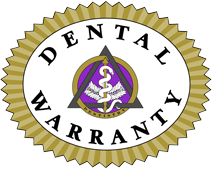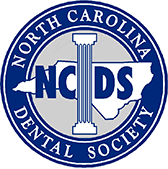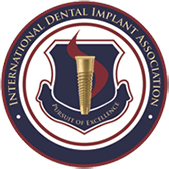Oral care is a vital part of keeping your entire body healthy, and this involves learning how to floss your teeth. While many people have likely grown up being told to brush twice a day and visit the dentist every six months, flossing is often overlooked.
How often are you supposed to floss your teeth? What are the benefits of flossing your teeth properly?
People should make sure they are flossing daily, as it helps to remove food particles between the teeth that are otherwise missed with a standard toothbrush. Furthermore, everyone needs to know how to use dental floss correctly.
Step-by-Step Instructions on How to Floss
1) Tear a relatively long piece of floss from the dispenser. Remember, the piece will shorten when you grab it.
2) Wrap both ends of the floss around your middle fingers. This will prevent the floss from slipping out of your fingers and leaves the thumb and index finger available for use.
3) Pinch the floss between the thumb and index finger. When doing this, leave a couple of inches of floss between the fingers.
4) Using that piece of floss between the fingers, slide the floss between every tooth. Try to use the index fingers to direct the floss through the gaps, picking up food particles as it goes.
5) Bend the floss in a perpendicular motion to reach the teeth at the back of the mouth. When flossing the upper teeth, use the thumbs instead of the index finger to fully reach the gum line of every tooth.
These are the basics of using dental floss; however, there are a few tips that can make the job both more effective and easier.
Tips for Flossing Effectively
Everyone has experienced the frustration of visiting the dentist and hearing him or her say, “you aren’t flossing properly.” To prevent those food particles from building up, give a few of these tips a try.
- Floss in each gap at least twice. Remember, Food particles can rest on either side of a tooth. Floss twice to ensure that you reach the sides of each tooth.
- Remember to floss behind the gum line as well. Because it is hard to see, many people forget to floss in this area.
- Unwrap and rewrap the floss to use a clean section on every gap. When in doubt, tear another segment.
- One of the most common problems is using a piece of dental floss that is too short. Try to tear about 18 inches.
- If the floss keeps slipping, try and wrap the floss around the middle fingers an extra time. This will make the floss easier to keep in place.
Types of Dental Floss
There are numerous types of dental floss as there are many toothbrush options.Different people may prefer different types of floss. Depending on the situation, some types of floss are better for oral health than others.
Some of the options include:
Dental Tape: Dental tape, often called super floss, is ideal for people who have large gaps between their teeth. These are great for reaching the sides of the teeth when the gap is too large for standard dental floss.
Waxed Floss: On the other hand, for people who have crowded teeth, small waxed floss can be helpful. Standard dental floss sometimes tears when people slide it into tight spaces. Waxed floss can glide through those places with ease.
Disposable Flossers: These are fantastic for people who don’t like to deal with a lot of mess when they floss. They come in pre-measured lengths often attached to plastic holders that are easy to grab. They even come in interesting shapes to help children learn how to floss.
Spongy Floss: When people have braces, bridges, or other oral appliances in their mouth, it can be a challenge to use regular floss. Standard floss often gets stuck, bent, or tears going around these oral appliances. Spongy floss can help people get their dental floss into these appliances and keep the teeth clean.
Electric Flosser: Even though it is a little bit more expensive, an electric flosser is great for people with oral appliances or those who struggle with the mess of flossing as well. Electric flossers also work well for people who floss inconsistently and are trying to develop good oral care habits.
When in doubt, the most reliable source of information is an oral health professional. If you have questions or concerns, please feel free to contact us at Modern Family Dental Care.
Conveniently located in Concord Mills, and Davis Lake, we provide friendly dental care services to people of all ages. We would be honored to take care of your and your family’s oral health needs.






